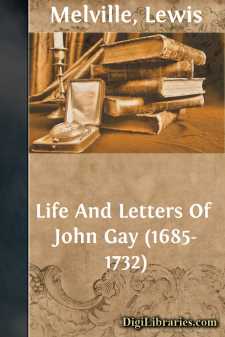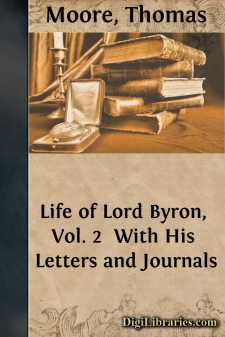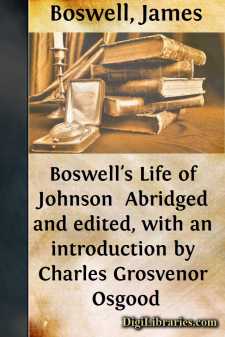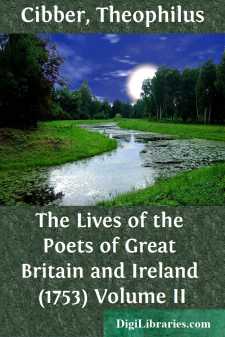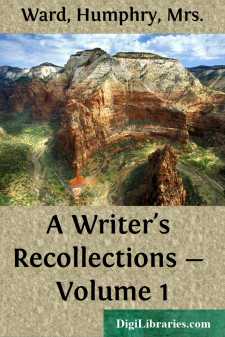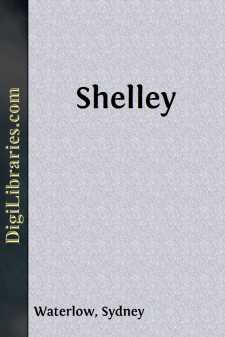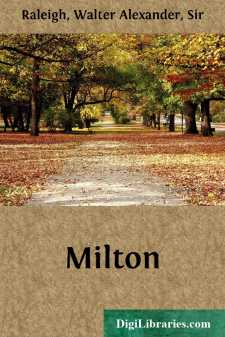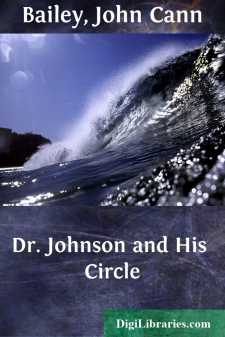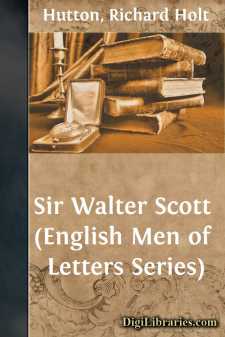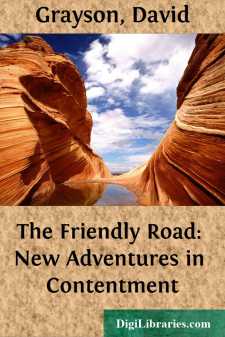Biography & Autobiography
- Adventurers & Explorers 15
- Artists, Architects, Photographers 16
- Business 2
- Composers & Musicians 14
- Criminals & Outlaws 5
- Editors, Journalists, Publishers 6
- Educators 1
- Entertainment & Performing Arts 3
- General 74
- Health, Exercise & Fitness 1
- Historians 3
- Historical 83
- Law Enforcement 1
- Lawyers & Judges 3
- Literary
- Medical 7
- Military 48
- Naturalists, Gardeners, Environmentalists 8
- Personal Memoirs & Diaries 227
- Philosophers 3
- Political 9
- Presidents & Heads of State 38
- Religious 38
- Rich & Famous 27
- Scientists 13
- Women 31
Literary Books
Sort by:
by:
Lewis Melville
CHAPTER I 1685-1706EARLY YEARS The Gays were an old family, who settled in Devonshire when Gilbert le Gay, through his marriage with the daughter and heiress of Curtoyse, came into possession of the manor of Goldsworthy, in Parkham. This they held until 1630, when it passed out of their hands to the Coffins. Subsequently they were associated with the parish of Frittelstock, near Great Torrington. In...
more...
by:
Thomas Moore
NOTICES LIFE OF LORD BYRON. Having landed the young pilgrim once more in England, it may be worth while, before we accompany him into the scenes that awaited him at home, to consider how far the general character of his mind and disposition may have been affected by the course of travel and adventure, in which he had been, for the last two years, engaged. A life less savouring of poetry and romance...
more...
by:
James Boswell
INTRODUCTION Phillips Brooks once told the boys at Exeter that in reading biography three men meet one another in close intimacy—the subject of the biography, the author, and the reader. Of the three the most interesting is, of course, the man about whom the book is written. The most privileged is the reader, who is thus allowed to live familiarly with an eminent man. Least regarded of the three is...
more...
THE LIVES POETS A poet who flourished in the reign of Charles I. but of whose birth and life we can recover no particulars. He was highly esteemed by some wits in that reign, as appears from a Poem called Steps to Parnassus, which pays him the following well turned compliment. [2] Let Brewer take his artful pen in hand,Attending muses will obey command,Invoke the aid of Shakespear's sleeping...
more...
by:
Humphry Ward
CHAPTER I EARLY DAYS Do we all become garrulous and confidential as we approach the gates of old age? Is it that we instinctively feel, and cannot help asserting, our one advantage over the younger generation, which has so many over us?—the one advantage of time! After all, it is not disputable that we have lived longer than they. When they talk of past poets, or politicians, or novelists, whom the...
more...
by:
Sydney Waterlow
Chapter I. Shelley and His Age In the case of most great writers our interest in them as persons is derived from out interest in them as writers; we are not very curious about them except for reasons that have something to do with their art. With Shelley it is different. During his life he aroused fears and hatreds, loves and adorations, that were quite irrelevant to literature; and even now, when he...
more...
INTRODUCTION Francis Bacon, in one of his prose fragments, draws a memorable distinction between "arts mechanical" and "sciences of conceit." "In arts mechanical," he says, "the first device comes shortest, and time addeth and perfecteth. But in sciences of conceit the first author goeth farthest, and time leeseth and corrupteth.... In the former, many wits and industries...
more...
by:
John Cann Bailey
CHAPTER I JOHNSON AS A NATIONAL INSTITUTION The name of Samuel Johnson is, of course, not the greatest in English prose, but even to-day, when he has been dead more than a century and a quarter, it is still the most familiar. We live in an age of newspapers. Where all can read, the newspaper press, taken as a whole, will be a fairly accurate reflection of what is in the mind of a people. Nothing will...
more...
CHAPTER I. ANCESTRY, PARENTAGE, AND CHILDHOOD. Sir Walter Scott was the first literary man of a great riding, sporting, and fighting clan. Indeed, his father—a Writer to the Signet, or Edinburgh solicitor—was the first of his race to adopt a town life and a sedentary profession. Sir Walter was the lineal descendant—six generations removed—of that Walter Scott commemorated in The Lay of the Last...
more...
by:
David Grayson
CHAPTER I. I LEAVE MY FARM "Is it so small a thingTo have enjoyed the sun,To have lived light in spring?" It is eight o'clock of a sunny spring morning. I have been on the road for almost three hours. At five I left the town of Holt, before six I had crossed the railroad at a place called Martin's Landing, and an hour ago, at seven, I could see in the distance the spires of...
more...


